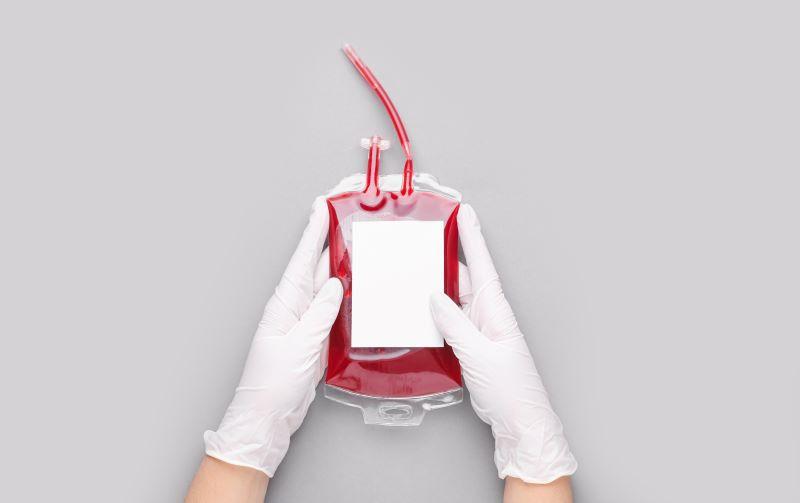Get Healthy!

- Cara Murez
- Posted September 12, 2023
In Rare Cases, Blood Transfusion Might Cause Brain Hemorrhage
It's possible that the cause of spontaneous, recurring brain hemorrhages can be passed through blood transfusion, researchers say.
The likelihood of this happening is very slim, however.
Still, "blood transfusions are relatively common, which makes possible negative effects an important public health issue,"said study co-author Gustaf Edgren, a researcher at the Karolinska Institute in Sweden.
"However, in this case, it's very unlikely that you'd suffer a brain hemorrhage from something transmitted through a transfusion,"Edgren added in an institute news release.
A vascular disease called cerebral amyloid angiopathy (CAA) involves proteins accumulating along the tiny blood vessels of the brain. Past research has shown that CAA can be transferred from one individual to another through neurosurgery and probably via treatment using a certain type of growth hormone.
The new research, from scientists in Sweden, Denmark and Belgium, shows that patients who have received blood from donors who later suffered recurring brain hemorrhages were more than twice as likely to suffer a brain hemorrhage themselves.
This suggests that some factor that can give rise to these spontaneous brain hemorrhages can be spread through blood transfusion, the study authors said.
Yet, only 0.1% of the donors in the study later had recurring brain hemorrhages, so there were only a few affected patients.
The most important part of this research is further support for the idea that CAA can be transmitted between individuals, according to the investigators. If it is, in fact, true, that may have consequences in several fields, they said.
For the study, the researchers used the Swedish-Danish transfusion database SCANDAT, which contains data on blood donors and patients receiving transfusions since the 1970s. More than 1 million patients were included.
Confirmation is now needed, so researchers plan to examine samples from the Danish Blood Donor Study biobank to see if they can identify aberrant proteins associated with CAA.
The researchers also plan to get CT and MRI scans from the affected donors and patients to try to further understand what's happening.
"This study does not demonstrate causality, so the observed increase in risk could depend on other factors,"said study co-author Jingcheng Zhao from the Karolinska Institute. "More research is needed to confirm our findings and understand the potential underlying mechanism."
The findings were published Sept. 12 in the Journal of the American Medical Association.
More information
The U.S. National Library of Medicine has more on cerebral amyloid angiopathy.
SOURCE: Karolinska Institute, news release, Sept. 12, 2023







